How to Outsmart Today’s Sneakiest Phishing Scams
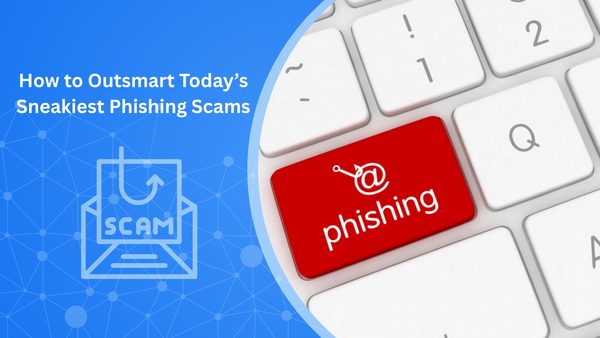
Every family deserves a scam-free life — for Cybersecurity Awareness Month and beyond.
A Family Challenge for Cybersecurity Awareness Month
Last week, we kicked off Cybersecurity Awareness Month with an important reminder of why strong, unique passwords paired with MFA are your best friend when it comes to securing your accounts and sensitive information.
In our following exposé, we want to really focus on freeing your family’s online life from scams.
Why?
Because scams are part of everyday digital life. According to a study from the Pew Research Center, a staggering 73% of adults in the US have experienced some kind of online scam or attack, and they cut across every age group.
Nearly everyone gets scam calls, texts, or emails at least weekly.
- 36% purchased a fake or undelivered product that wasn’t refunded.
- 29% had an online account hacked.
- 24% gave away personal information after a scam email, text, or call.
Let’s break down the three biggest threats—phishing, smishing and vishing—and learn how to stay ahead, together as a family.
You can also read more about phishing scams here.
Phishing Emails: When the Inbox Becomes a Trap
Phishing remains the oldest trick in the scammer’s book, but now it’s smarter and more convincing than ever.
Our recent “They Wear Our Faces” report revealed that, from March to September 2025, nearly 37% of the world’s email spam targeted the United States, and 45% of it was fraudulent or malicious. Scammers used everything from financial phishing, advance fee fraud and extortion attempts to dating in an effort to cheat internet users. Microsoft, Costco, Amazon, American Express and DocuSign were among the most impersonated brands.
But what makes phishing more dangerous today is that it’s powered by AI. Scammers now use algorithms to mimic tone, language, and logos, making emails indistinguishable from legitimate messages.
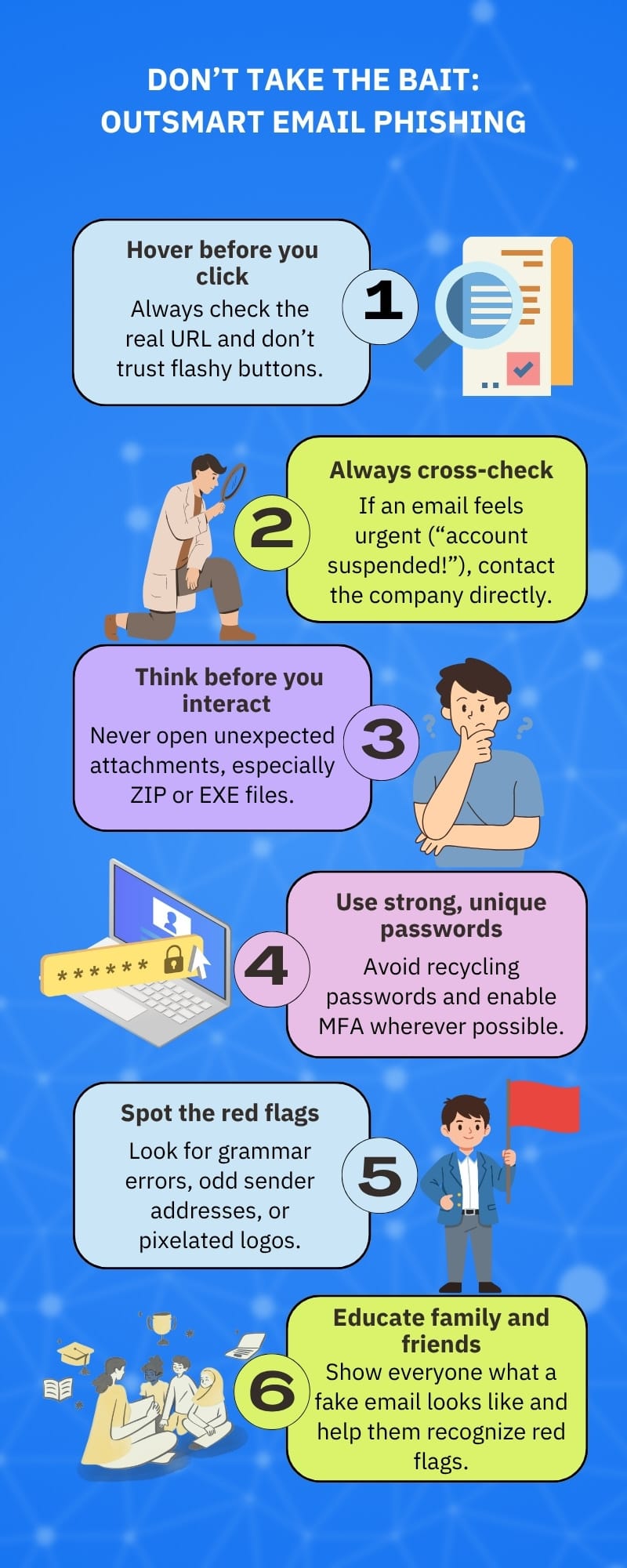
Smishing: Text Messages with a Hidden Hook
As people grow wiser to email phishing scams, attackers move to your phone.
Smishing (SMS phishing) is exploding. Bitdefender telemetry shows that 10% of U.S. users have received at least one SMS scam in the past two months. Pew’s findings echo this trend: most Americans get fraudulent texts weekly, and the attacks span every demographic.
Scammers often pose as delivery companies, banks, or even government agencies. They use personalized messages — sometimes with your name or a fake tracking code — to look legitimate.
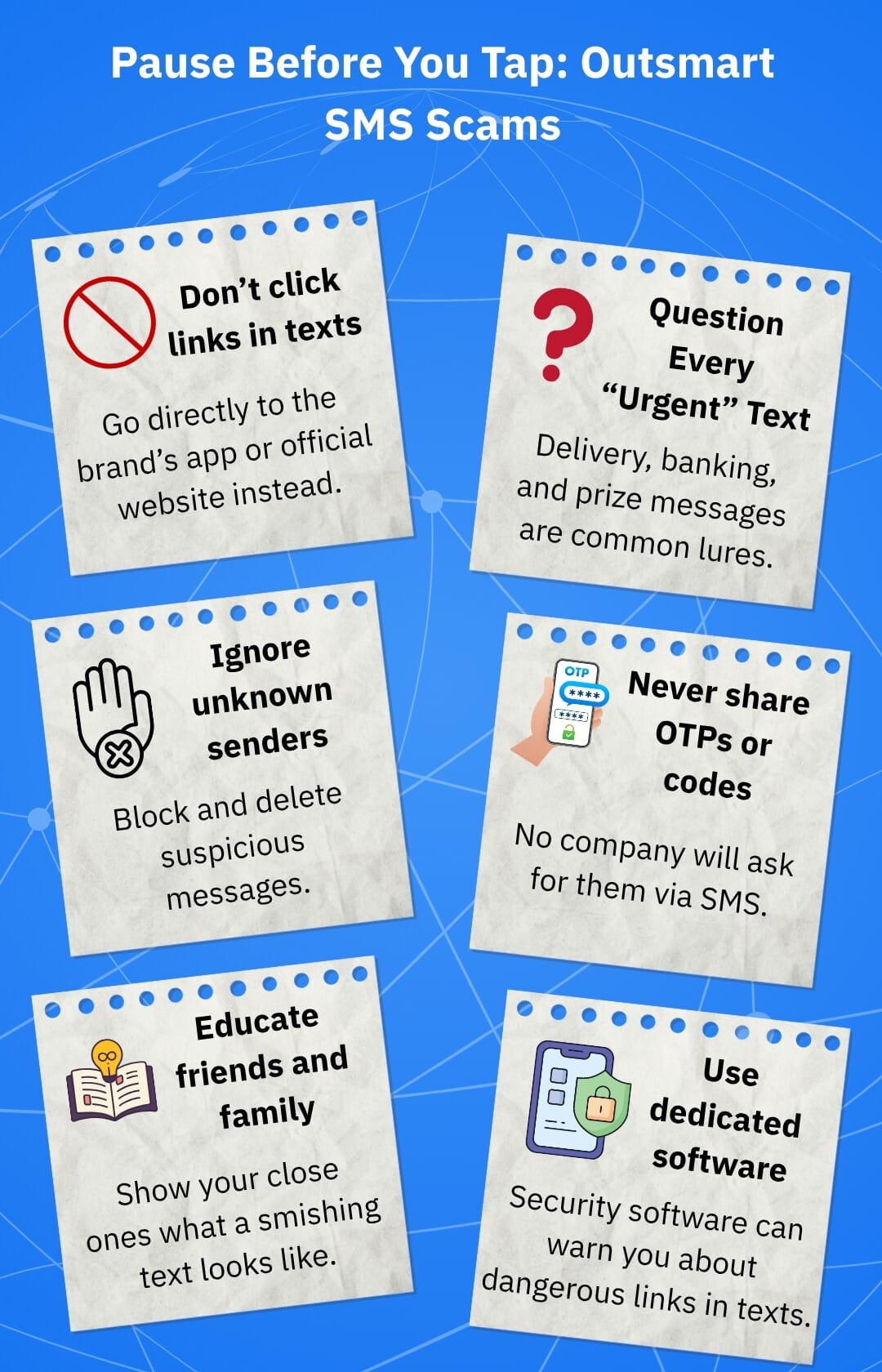
Vishing: When the Scam Calls You
Vishing (voice phishing) is where scams get personal — literally. Attackers call pretending to be a bank agent, police officer, or even a member of your own family. In 2025, thanks to AI voice cloning, this scam is terrifyingly convincing.
Bitdefender’s “They Wear Our Faces” report warns of a rise in voice cloning scams, where criminals mimic children’s or relatives’ voices to demand urgent money transfers. It’s part of an emotional manipulation trend — scammers use fear, empathy, and urgency to override reason.
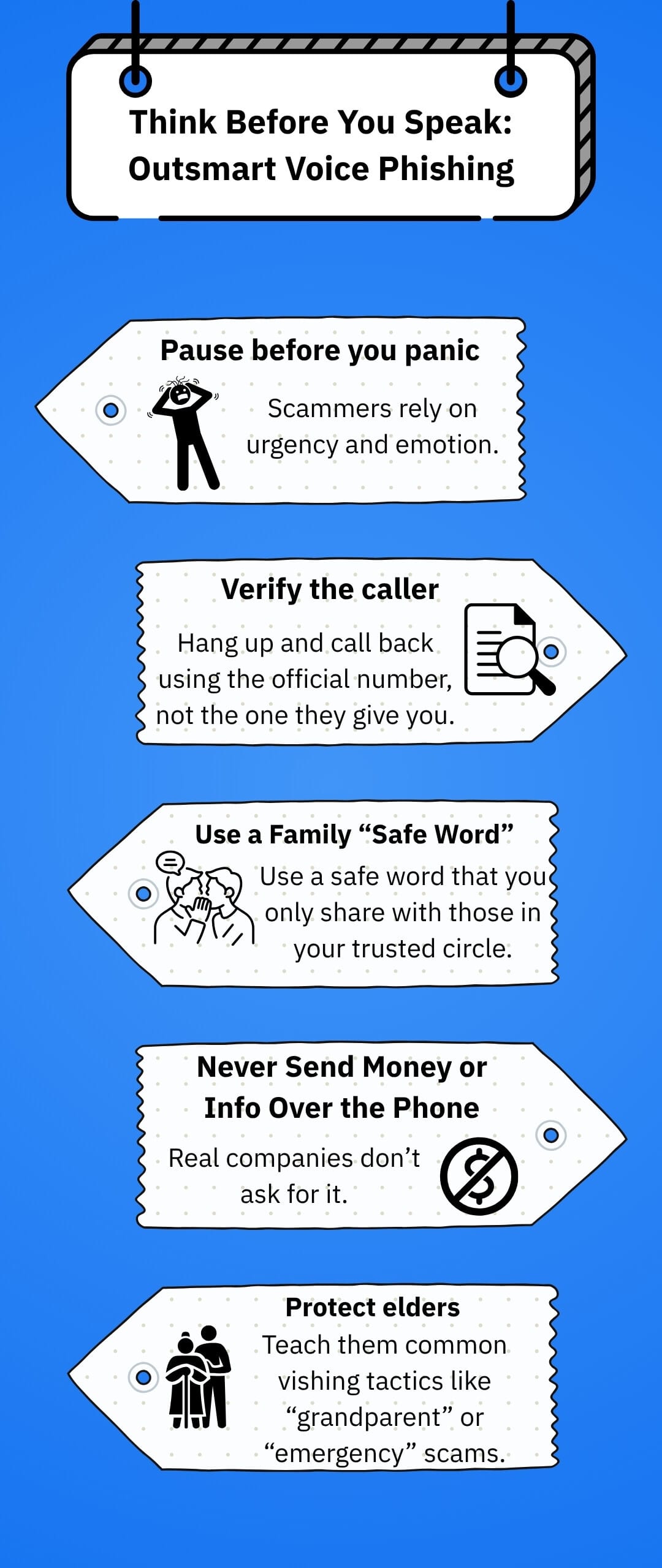
A Scam-Free Life Starts at Home
A Pew Research insight: 22% of Americans have experienced at least two types of online scams, and another 22% have suffered three or more. The message? Cybercrime doesn’t discriminate — it’s coming for everyone.
So this Cybersecurity Awareness Month, make your home a scam-free zone:
- Pause and Verify Everything: No link, text, or call gets a free pass.
- Share, Don’t Hide: Talk about strange messages or calls openly.
- Secure Every Device: Install Bitdefender Premium Security on all family devices. Try it for free with our 30-day trial
- Stay Educated: Follow Bitdefender’s Hot for Security blog for the latest scam alerts.
- Remember: If it’s unsolicited and feels urgent it’s probably a scam.
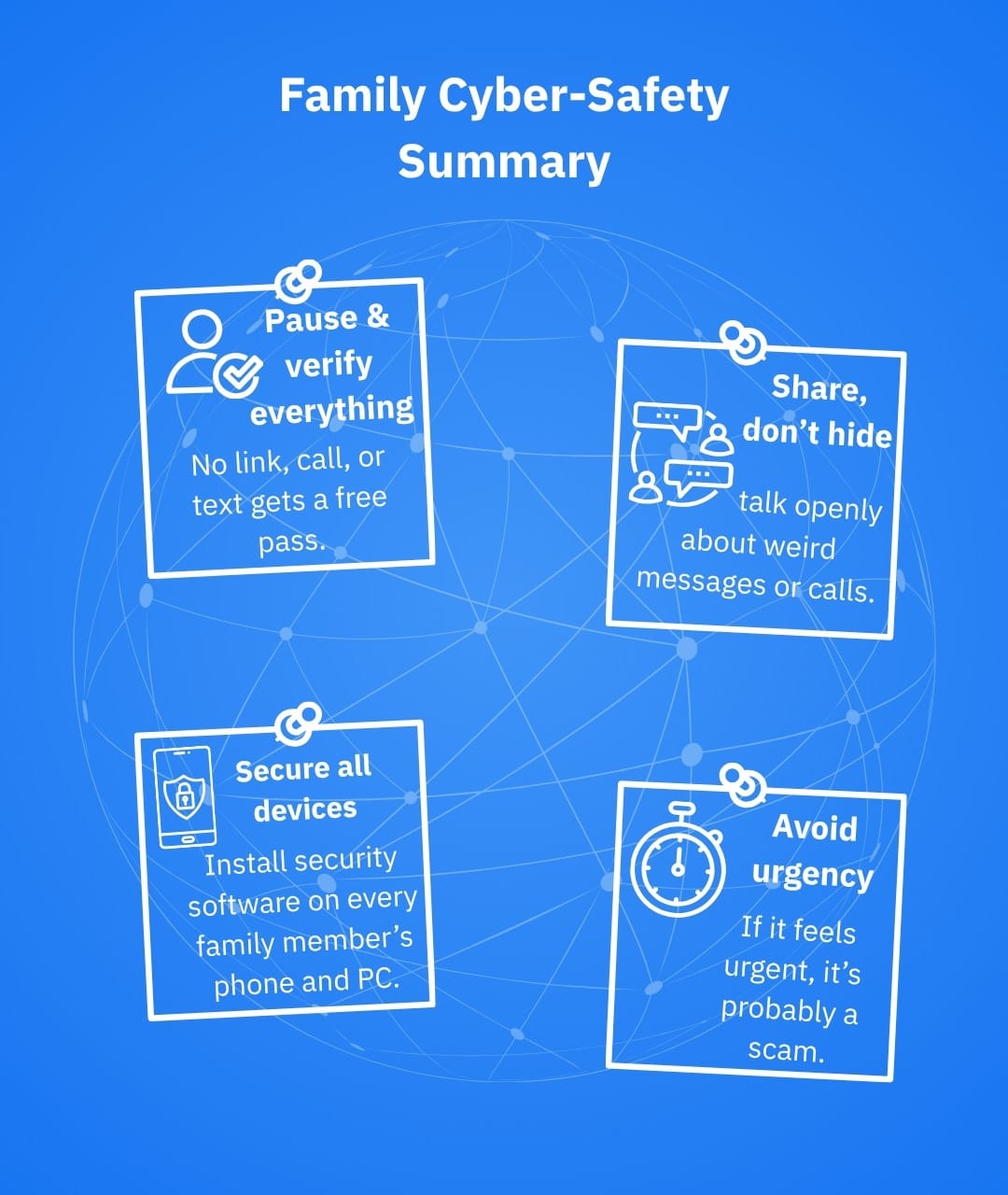
The Bitdefender Advantage
- Bitdefender Free Antivirus offers real-time protection against malicious links and downloads.
- Bitdefender Premium Security and Bitdefender Ultimate Security include advanced anti-phishing, anti-fraud, and web filtering.
- Bitdefender Scamio and Bitdefender Link Checker are FREE tools that help you spot scams instantly — across email, social media, and text.
- Bitdefender Digital Identity Protection monitors if your data appears in leaks or breaches — giving you the power to act fast.
Phishing, smishing, and vishing might wear different masks, but their goal is always the same — to exploit trust and emotion.
With awareness, smart habits, and trusted protection from Bitdefender, your family can stay one step ahead and enjoy a truly scam-free life.
Don’t forget to stay tuned to our Bitdefender HotforSecurity for more tips, tricks, and alerts this cybersecurity awareness month!
tags
Author
Alina is a history buff passionate about cybersecurity and anything sci-fi, advocating Bitdefender technologies and solutions. She spends most of her time between her two feline friends and traveling.
View all postsVlad's love for technology and writing created rich soil for his interest in cybersecurity to sprout into a full-on passion. Before becoming a Security Analyst, he covered tech and security topics.
View all postsYou might also like
Bookmarks


